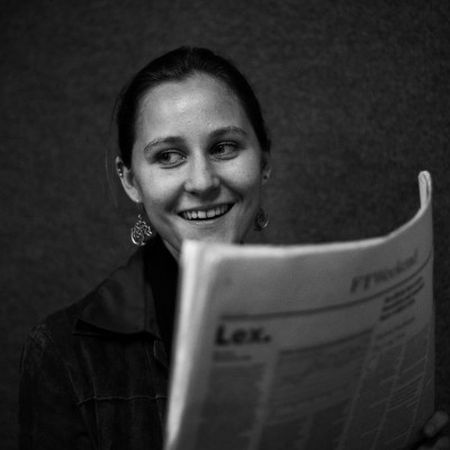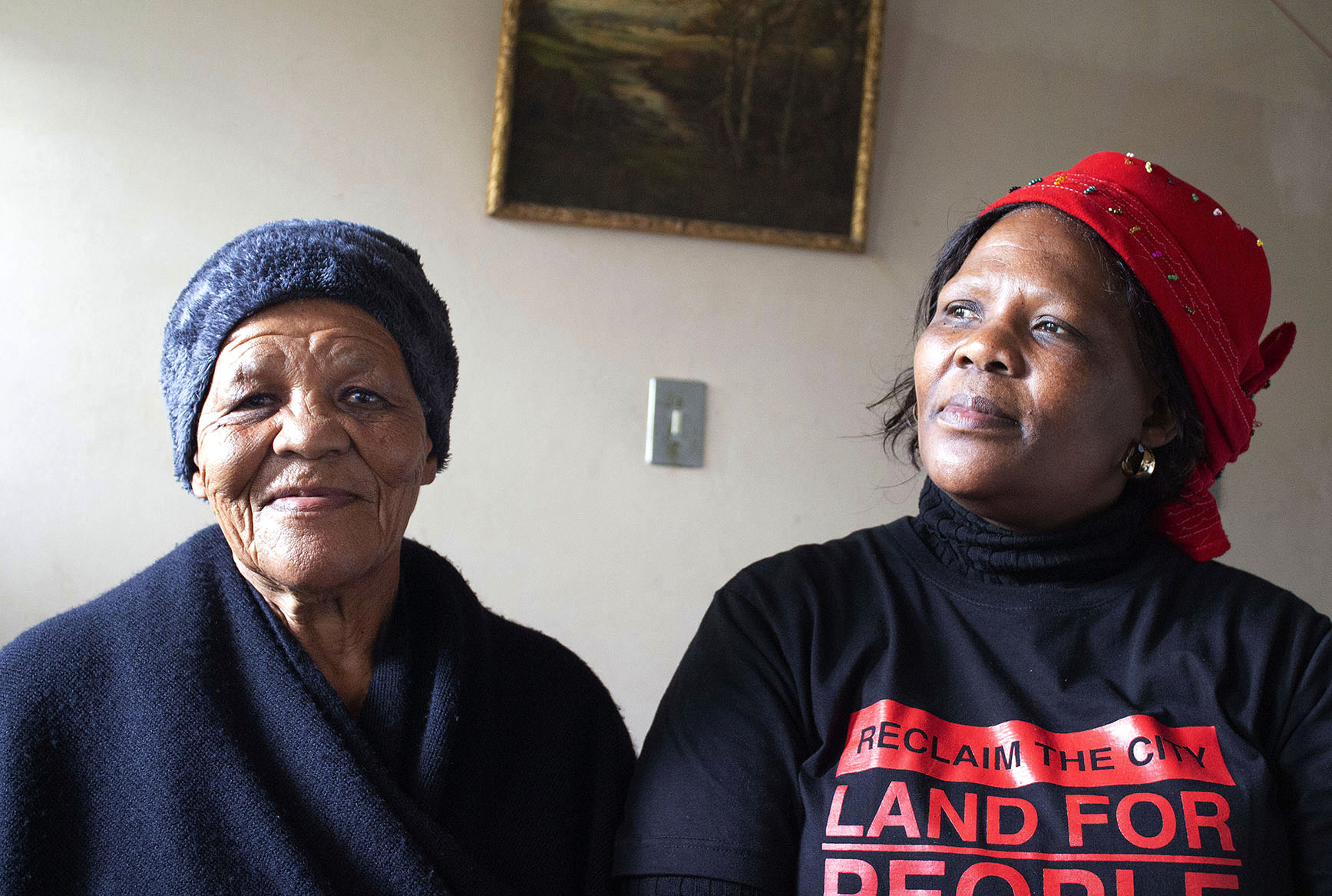For more than 20 years, Linda Dewy lived in a rented apartment in Sea Point, Cape Town. She came to the city as a domestic worker with little experience, before taking on a job as a waitress and working her way up to the position of chef.
During that time, she got married, had a child and was widowed. When her mother, Hilda Modupi, was diagnosed with Alzheimer’s disease, Dewy brought her over from the Northern Cape to live in her apartment.
But in 2017, sharp rental hikes in the building threw Dewy’s life into chaos. She could no longer afford to live in the area she had called home for most of her life.
“They started putting the rent so high up that I couldn't afford it any more… I will never forget that place — it’s where I started my life. My child’s life started there… and then we had to move out. We didn’t know what to do, where to go. It was like a nightmare to live there for that last month, because… if somebody knocked at that door we thought, ‘Oh, now is the time we are going to be chucked out,’” she recalled.
/file/dailymaverick/wp-content/uploads/2025/07/Tamsin-AKH-Linde-inset-1.jpg)
Around the time Dewy was evicted, the nonprofit group Reclaim the City was leading a series of demonstrations for affordable housing that led to the occupation of two buildings in Cape Town — the old Woodstock Hospital, later dubbed Cissie Gool House, and the vacant Helen Bowden Nurses Home in Green Point, which became known as Ahmed Kathrada House.
Dewy was among the first wave of occupiers who moved into Ahmed Kathrada House. Eight years later, she remains one of several Reclaim the City leaders who manage the community of about 800 people living at the site.
“I’m staying with my mother and child, and this is my home now… All of us, we are like a big family in this place,” she said.
/file/dailymaverick/wp-content/uploads/2025/07/Tamsin-AKH-Linde-inset-2.jpg)
Women-led community
The high cost of accommodation in the inner city prevents lower income people from living close to sources of work, according to Dewy. She explained that this “means poor people must just stay poor”.
“That’s the system. They want us to just stay poor,” she said.
Many of the families living at Ahmed Kathrada House are headed by single or widowed mothers, according to Dewy. For these women, life in the occupation provides access to better work opportunities for themselves, and quality schooling for their children.
Dewy runs a catering service from her unit in the occupation, producing wares such as samosas, cakes and prepared lunches, despite the challenges presented by the lack of electricity and water in the building. The rooms she shares with her mother and daughter are filled with serving utensils, family photographs and pieces of art she has collected and hung on the walls.
/file/dailymaverick/wp-content/uploads/2025/07/Tamsin-AKH-Linde-inset-3.jpg)
“Because I’m looking after my mother, I can’t really work full-time now, but if I get a job… we look after each other. I select ladies who live here and say, ‘Okay, let us do this thing together, so that each of us can at least get bread on the table for our kids,’” she said.
“If you do that, at night when you go to sleep, you feel like, ‘I’ve done something. I’ve made some women happy today.’ At least they know today, their kids are going to sleep having something in their stomachs.”
Along with other women leaders at the occupation, Dewy helps residents struggling with unemployment to find jobs in the surrounding area.
“That’s what we call ubuntu. Sometimes the system thinks that it’s placing us down, but it’s making us stronger. They’re making us human. We start looking out for each other,” she said.
“This is a village here because we are raising our children… Babies are born here. Growing up, they don’t know other homes, they are Ahmed Kathrada House [children] and it’s so nice to see those kids who are born here. They are so strong… and clever. They get to be raised by everybody.”
/file/dailymaverick/wp-content/uploads/2025/07/Tamsin-AKH-Linde-inset-4.jpg)
Megan Bobontyana, another leader at Ahmed Kathrada House, said the blend of leadership styles among those managing the occupation had helped in overcoming many challenges, including conflicts between residents.
“It’s such a great balance that you get here because I’m… the tough lover, I’m the stricter one, and Mam Linda [Dewy] is the softer, kinder one. So, there’s always that buffer. We bring a different dynamic, each woman in our leadership,” said Bobontyana.
“I know that where I’m weak, Mam Linda is strong… and they know that [when needed], Megan will fill in the gaps.”
Fighting to be seen
Ahmed Kathrada House was occupied during the Reclaim the City protests against the Western Cape government’s sale of the Tafelberg site in Sea Point to a private buyer. The decision sparked outrage among housing rights activists, who argued the property should be used to provide social housing.
The legal battle between housing activist groups and the Western Cape government over the future of the Tafelberg site reached the Constitutional Court in February this year, with the court reserving judgment in the case.
Read more: Cape Town’s Tafelberg case goes to ConCourt — activists call for coordinated affordable housing plan
The Helen Bowden Nurses Home had stood vacant for many years at the time it was occupied, according to Dewy
“The government was never ready to talk to us [occupiers]. But now, at least, we are taking part in this public participation in the [Tafelberg] case in Sea Point. This is a wonderful thing, because they can see us as humans… you can talk to… Before, they acted like we were just animals who didn’t know what they wanted in life, but now they see the need,” she said.
While Dewy hopes to see the land around Ahmed Kathrada House developed for affordable housing, she says members of the occupation should have an opportunity to be a part of the development.
“We’re looking for them to rebuild this place… for us to live here as normal people, as citizens of Cape Town, but we don’t want them to move us away,” she said.
Daily Maverick reached out to the City of Cape Town about its engagement with occupants of Ahmed Kathrada House, but was referred to the Western Cape government for comment. A query was sent to the provincial government and its response will be added when it becomes available. DM





 Linda Dewy (right) with her mother Hilda Modupi in the rooms they share at Ahmed Kathrada House, an occupied building in Green Point, Cape Town, on 26 June 2025. (Photo: Tamsin Metelerkamp)
Linda Dewy (right) with her mother Hilda Modupi in the rooms they share at Ahmed Kathrada House, an occupied building in Green Point, Cape Town, on 26 June 2025. (Photo: Tamsin Metelerkamp)